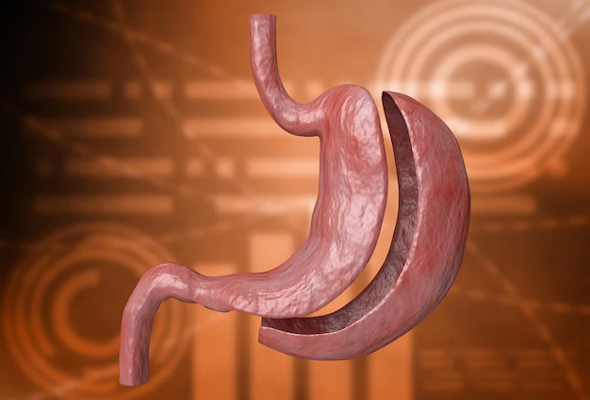Sleeve Gastrectomy
Sleeve gastrectomy, also referred to as vertical sleeve, gastric sleeve or tube gastrectomy, is a surgical procedure performed for the treatment of obesity. The procedure is a restrictive bariatric surgery to treat obese patients. It encourages weight loss by restricting the stomach size so it holds only a limited amount of food. This helps patients to eat less without hampering the normal digestive process.This operation also reduces the hormonal secretions of stomach causing a great reduction for the feeling of hunger
Sometimes sleeve gastrectomy is carried out as a first stage of a 2-stage operation in extremely obese patients with a BMI of 60 or more. This is done to achieve a considerable amount of weight loss so it is safer for the patient to undergo a second bariatric surgery if needed.
Disease overview
Obesity is a chronic condition in which there is an excessive accumulation of fat in the body. Obesity is defined as a Body Mass Index (BMI) of 30 to 34.9 and extreme or morbid obesity is a BMI of 40 or more. Obesity is a global problem affecting people of almost all age groups, and is associated with increased risk of cardiac problems, diabetes, high blood pressure, breathing difficulties, and other diseases.
Indications:
Sleeve gastrectomy is indicated for people whose BMI is 27 to 40 and suffering from obesity associated conditions and people with a BMI greater than 40. The surgery is recommended when diet, exercise or medication have not helped in reducing the patients weight.
Surgery:
The procedure is performed under general anaesthesia. The surgeon makes small keyhole incisions on your abdomen. A laparoscope, a thin instrument with a light and camera attached, is inserted through one incision, allowing your surgeon to clearly view the internal organs on a monitor.
Additional surgical instruments are inserted through the other incisions. Your surgeon will remove nearly 75-80% of the stomach. A thin sleeve shaped like a banana is created by stapling the remaining part of the stomach. At the end of the procedure, the incisions are closed with sutures. The entire procedure takes about 35 to 45 minutes to complete.
Advantages and disadvantages of sleeve gastrectomy:
Advantages:
Reduced stomach size makes you feel full sooner
Normal functions of the stomach are retained
Simpler than other bariatric surgeries
Can be performed laparoscopically
Shorter hospitalisation stay
Less operative time
No implant used as in lap band surgery
Minimal post-operative pain and discomfort
Shorter recovery time
Disadvantages:
Irreversible
May Need for second surgery in highly obese patients
Post-operative care:
Your doctor will prescribe pain relieving medications to keep you comfortable following the procedure.
You will be advised to take medication to reduce the amount of acid produced by your stomach.
Avoid strenuous exercises and lifting heavy weights until approved by your surgeon
For the first month after the procedure, eat only small amounts of soft foods
Sip water throughout the day to prevent dehydration.
Eat highly nutritious diet rich in proteins with a low fat content.
Your dietitian will tailor a new diet regimen for you to follow.
Frequently Asked Questions
Who is an ideal candidate for a sleeve gastrectomy?
Sleeve gastrectomy is indicated for people with a BMI of 40 and more, and also in those whose BMI is 30 to 40 and suffering from obesity associated conditions. The surgery is recommended when diet, exercise or medication have not helped in reducing patients weight.
What are the advantages of the sleeve gastrectomy?
The advantages include reduced stomach size which makes you feel full sooner, normal functions of the stomach are retained, simpler than other bariatric surgeries, can be performed laparoscopically, shorter hospitalisation stay, less operative time, minimal post-operative pain and shorter recovery time.
Can the surgery be reversed?
No, the surgery is irreversible.
Will I have to take any medication after surgery?
Yes, your doctor will prescribe pain relieving medications to keep you comfortable following the procedure. You will be advised to take medication to reduce the amount of acid produced by your stomach.
Should I exercise after surgery?
Absolutely. However, avoid strenuous exercises and lifting heavy weights until approved by your surgeon.
How will my diet change after surgery?
For the first month after the procedure, eat only small amounts of soft foods. Sip water throughout the day to prevent dehydration. Eat highly nutritious diet rich in proteins with a low fat content. Your dietitian will tailor a new diet regimen for you to follow.

